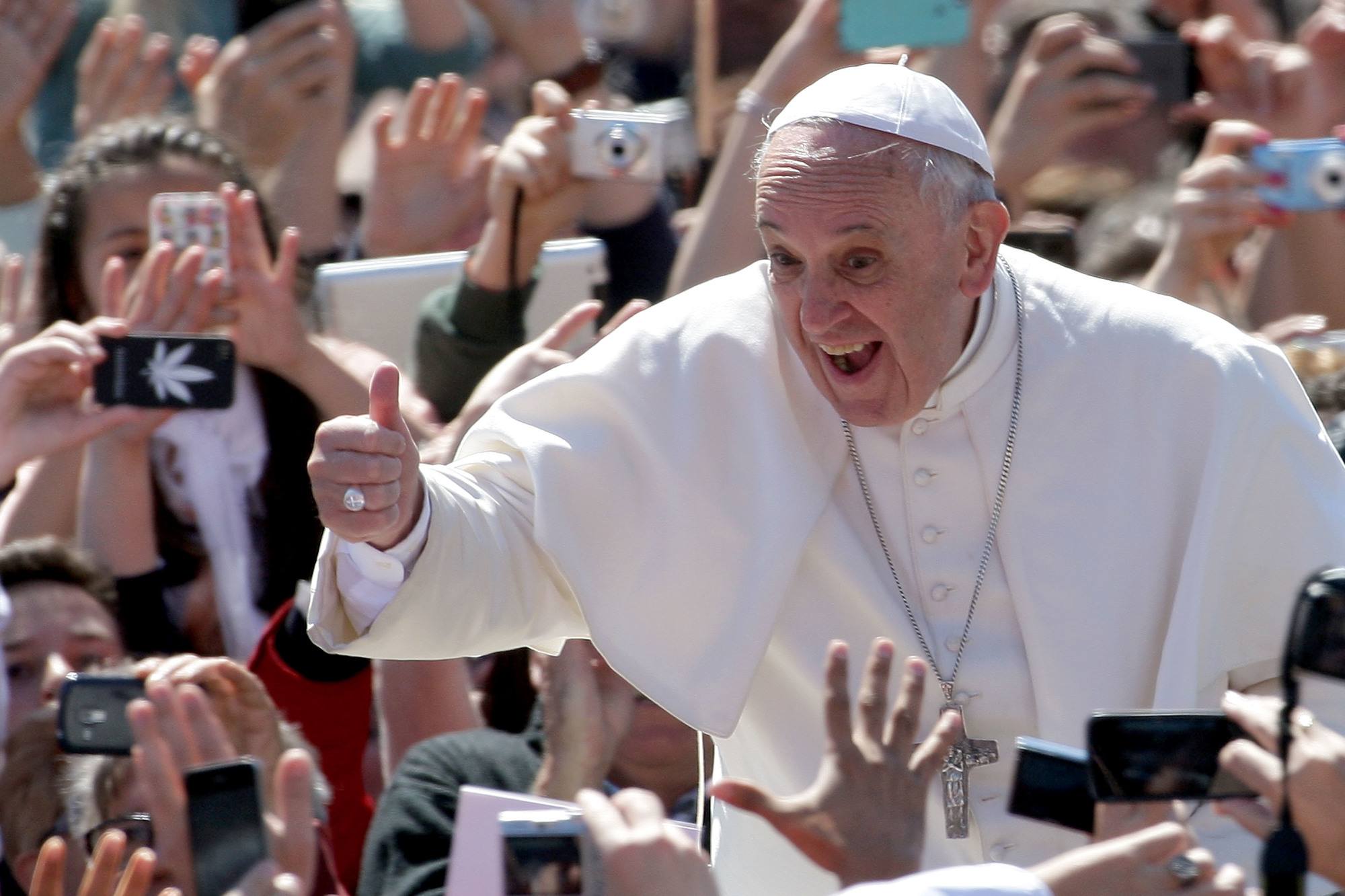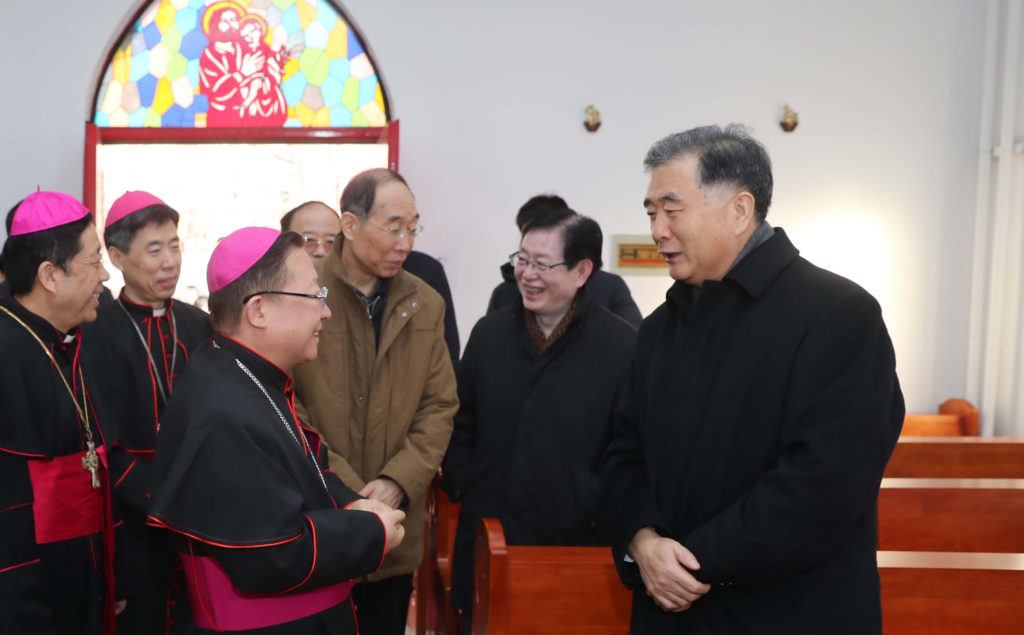Cardinal Robert Sarah of Guinea in his office at the Vatican (Credit Image: Vandeville Eric/ABACA/ABACA/PA Images)

This profile forms part of UnHerd’s Free Minds series.
If I were setting the history paper for the Oxbridge entrance exam, I’d ask the question:
“What was the greater peril for the Catholic Church: the Reformation or the Second Vatican Council:?”[1. Second Vatican Council (“Vatican II” – the first had been in 1868) 21st ecumenical council of the Roman Catholic Church (1962–65), announced by Pope John XXIII in January 1959 as a means of spiritual renewal for the church and as an occasion for Christians separated from Rome to join in search for reunion]
The answer at first seems obvious: surely the Reformation, which permanently hived off a huge chunk of Catholic Christendom?
Yet a growing number of Catholics, clergy and lay, appear to think the answer might be the Second Vatican Council.
Chou En Lai, the first premier of the People’s Republic of China, when asked what he thought the historic impact of the French Revolution was, considered the question for a moment and replied, “It’s too soon to tell.” In truth, the story’s more complicated – the American translator said that Chou confused the Revolution with the Paris Commune – but the anecdote does make the point that history is rarely over and done with.
It’s certainly possible to make a case that the Reformation isn’t over. But it’s also possible to argue that Rome’s damage limitation exercise – including the Counter-Reformation – cured the infection, stopped its spread and allowed a significant convalescence which left the Church in better health than ever. That’s one of the pleasures of history.
On the other hand, an increasing number would argue that with the watering down – abandonment, even – of the Church’s unique claim to “Authority” (as if to Christ’s charge to St Peter, “tu es Petrus et super hanc petram aedificabo ecclesiam meam”,[2. “thou art Peter, and upon this rock I will build my church”, (“and the gates of hell shall not prevail against it. And I will give unto thee the keys of the kingdom of heaven: and whatsoever thou shalt bind on earth shall be bound in heaven: and whatsoever thou shalt loose on earth shall be loosed in heaven.”) Matthew 16:18-19] a “sed” – “but” – had been added), Vatican II introduced a bacillus to the Catholic Church’s central nervous system.
What was the essence of Vatican II?
The argument pro Vatican II runs roughly thus: the Church is not against, not above, not apart, but in the modern world. Vatican II sought to engage, not condemn. The church, by its teaching and by its discipleship, has something to say to the world. At the same time, the world is saying something to the church.
This is Pope Francis’s position, and it is increasingly troubling a number of senior cardinals – the men who elect the pope and subsequently advise him – not least of whom is Cardinal (Robert) Sarah.

In one sense, it is difficult to characterise Cardinal Sarah as legitimately belonging in this week’s UnHerd series of free thinkers, or mavericks. Sarah, along with the other cardinals who are expressing unease with some of the things that Francis says, would argue that they were trying to be faithful to the Magisterium, which is not exclusively the pope’s dominion[3. “The task of interpreting the Word of God authentically has been entrusted solely to the magisterium of the Church, that is, to the Pope and to the college of bishops in communion with Him.” Catechism of the Catholic Church]. Indeed, they would seem to hold that in key respects, it is Francis himself who thinks and acts in an independent way.
Nevertheless, given the doctrine of papal supremacy – “the Pope enjoys, by divine institution, supreme, full, immediate, and universal power in the care of souls” (Catechism of the Catholic Church) – it is rather easier to portray dissenting cardinals as the ones who aren’t following the herd.
Who is Cardinal Sarah?
Sarah (pronounced “Sarah”) is generally a quiet man – no propositions nailed to church doors; no gathering of kindred spirits into a following; no submissions to the pope (whether dubia – formal requests for clarification on teaching, and which imply dissent, as recently with three prominent cardinals – or, more serious, filial or fraternal corrections); indeed, his latest book is called The Power of Silence: Against the dictatorship of noise.
But in The Power of Silence, he implies that until the election of Francis, the Catholic Church had been the world’s most consistent and brightest beacon of truth on moral teachings. Indeed, many other Christians (and non-Christians) depended on the Church to promote and defend the teachings of Natural Law, the necessary foundation of civilised society (Pope John Paul II’s absolute opposition to the Soviet regime falls to mind).
But now, Sarah suggests, the Church itself is rapidly sliding into self-destructive worldliness and away from its core mandate, which is to preach the gospel in order to save souls.
Robert Sarah’s background is interesting. As ever, some use it to dismiss his views as “Third World” and therefore unsophisticated; others say it endows him with certain insight. He was born in 1945, in what was then French Guinea, of converts to Christianity from animism. He studied in various West African seminaries (it was a time of political upheaval, necessitating several moves) and in France, was ordained in 1969, and afterwards studied in Rome.
Pope John Paul made him a bishop only ten years later, and in 2001, brought him to Rome as secretary of the Congregation (department) for the Evangelisation of Peoples. On leaving Guinea, he spoke out against the government of Lansana Conté, saying that Guinean society was:
“…built on the oppression of the insignificant by the powerful, on contempt for the poor and the weak, on the cleverness of poor stewards of the public good, on the bribery and corruption of the administration and the institutions of the republic.”[4. Robert Cardinal Sarah, Nicolas Diat, God or Nothing: A Conversation on Faith, August 1, 2015]
Pope Benedict made him a cardinal in 2010, and in 2014 Pope Francis appointed him Prefect (head) of the Congregation for Divine Worship and the Discipline of the Sacraments – a department central to the very being of the Church.
But then, in 2015, to his detractors Sarah was suddenly revealed as an arch-conservative. At the bishops’ synod to consider the findings of the mismanaged consultation on the family, he said that while the Church needed “to be inclusive and welcoming to all that is human”, it must still proclaim the truth in the face of two great challenges: “On the one hand, the idolatry of Western freedom; on the other, Islamic fundamentalism – atheistic secularism versus religious fanaticism.”
He has called gender ideology and ISIS the “two radicalizations” that threaten the family (thereby striking at the heart of Catholic understanding), the first through divorce, same-sex marriage and abortion; the second through child marriage, polygamy and the subjection of women.
Unsurprisingly, the remarks have made him “friends” and “enemies”. The latter gained some comfort recently when Pope Francis rejected Sarah’s call last year for priests to celebrate mass ad orientem, i.e. facing east, away from the congregation rather than west and towards. (With the substitution of the vernacular for Latin, ad occidentem was one of the most visible reforms of Vatican II.) Christopher Lamb, The Tablet’s Rome correspondent, wrote: “It is highly unusual for the Vatican to publicly slap down a Prince of the Church, yet not entirely surprising given how Cardinal Sarah has operated…”
So what does this mean for Cardinal Sarah and for the Church?
Liturgical matters – for example ad orientem vs ad occidentem – may be arcane, certainly for non-Catholics, but the sense that Pope Francis is following a false trail is not. The most recent issue arousing concern – and far greater than the form of worship, for it touches on the freedom of worship – is Francis’s rapprochement with Beijing over the appointment of bishops.
Catholics in China are divided between those in the “underground” community who recognise the Pope, and those who belong to the state-controlled Catholic Patriotic Association, whose bishops are appointed by the government. (If that sounds just rather Anglican, it’s much more sinister.) There are reports that Francis supported an offer made to two “underground” bishops to make way for government-appointed prelates, and that five government-appointed bishops have already been made valid in the eyes of the Church.

Cardinal (Joseph) Zen, until 2008 the Bishop of Hong Kong, has been outspokenly critical:
“So, do I think that the Vatican is selling out the Catholic Church in China? Yes, definitely, if they go in the direction which is obvious from all they are doing in recent years and months”.
It does not help that Bishop Sorondo, Chancellor of the Pontifical Academy of Social Sciences, said on return from a visit to China last month: “Right now, those who are best implementing the social doctrine of the Church are the Chinese”.
When Pope Francis made Cardinal Sarah Prefect of the Congregation for Divine Worship and the Discipline of the Sacraments, the Catholic commentariat began speaking of him as papabile – having the quality to be made pope – but after his intervention at the synod on the family, and his “slapping down” over the ad orientem “misunderstanding”, his stock fell considerably. However, when the time comes for the election of a new pope, the Church’s internal contradictions – whether ascribable to the continuing working out of Vatican II or not – may well have reached the point where strong medicine is called for.
“At least you know where you are with Sarah” might well be the on dit in Conclave.










Join the discussion
Join like minded readers that support our journalism by becoming a paid subscriber
To join the discussion in the comments, become a paid subscriber.
Join like minded readers that support our journalism, read unlimited articles and enjoy other subscriber-only benefits.
Subscribe